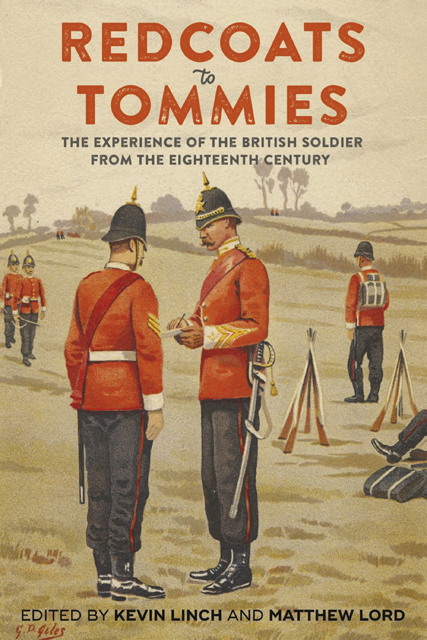7 - ‘Our Brother Officers in India’: The Military Lobby in Imperial Politics of the 1780s
Published online by Cambridge University Press: 17 January 2023
Summary
I cannot conceive of anything more preposterous than that the East India Company should be holding in their hands a large European Army, exclusive of the Crown, to be recruited from the subjects of this Country.
Henry Dundas’ candid sentiments, written to Lord Sydney in 1784, anticipated one of the priorities of William Pitt the Younger’s first administration. For nearly two centuries, the British East India Company had operated in India largely independent of the British state, trading, negotiating treaties, establishing settlements, and even conducting war. Since the mid-eighteenth century, its activities had taken on new prominence as the Company acquired sweeping new political authority in India. To support its expanding territories and operations, by 1784, it had amassed an army of more than one hundred thousand combatants, operating independently from the British army proper. Most of the Company’s soldiers were Indian or ‘native’ troops – called sepoys – but they included about ten thousand ‘European’ soldiers and officers. Dundas was not the only minister uncomfortable with the autonomy of those recruits. ‘[C]onsolidation’, Pitt himself proclaimed in a speech to Parliament, referring to a plan to incorporate the Company’s forces into the British army, ‘was, undoubtedly, to be wished for’. Yet no such consolidation would occur. Quite the opposite, Pitt’s government would help to elevate the standing of the Company’s European officers in the empire’s formal military hierarchies and in its political landscape. That shift in status was the result of the officers’ concerted efforts to renegotiate their perceived role in the empire – from a ‘preposterous’ absurdity to a source of national honour that could alleviate Britons’ anxieties about colonial expansion.
The confrontation between the British state and the Company’s officers over their autonomy belongs to a broader moment of uncertainty across Britain’s empire. Vincent Harlow famously described the British reaction to the crisis of the American Revolution as ‘a swing to the East’. In fact, British metropolitan interest in India had been building since the Seven Years War, prompted both by the state’s growing interest in centralised control and by a visible transformation in the Company’s power in India. In 1765, the Company acquired formal control over Bengal, a population and territory many times larger than Britain itself.
- Type
- Chapter
- Information
- Redcoats to TommiesThe Experience of the British Soldier from the Eighteenth Century, pp. 149 - 168Publisher: Boydell & BrewerPrint publication year: 2021

